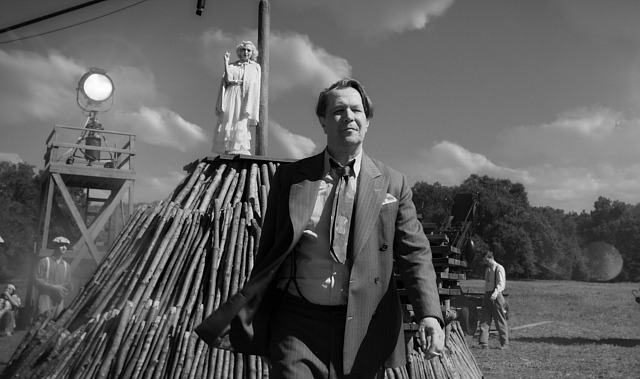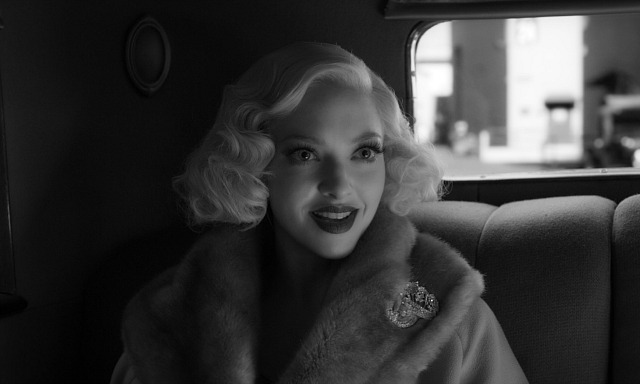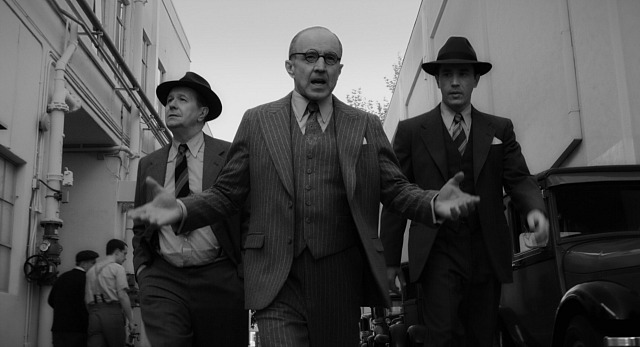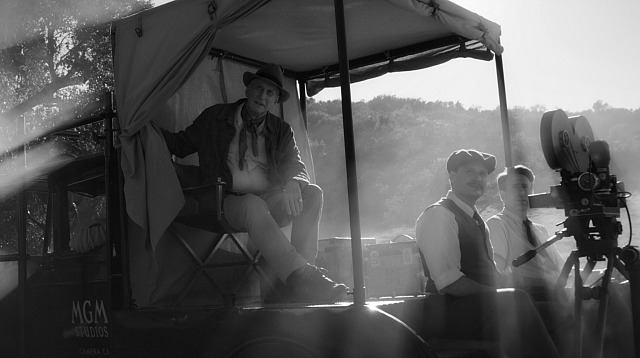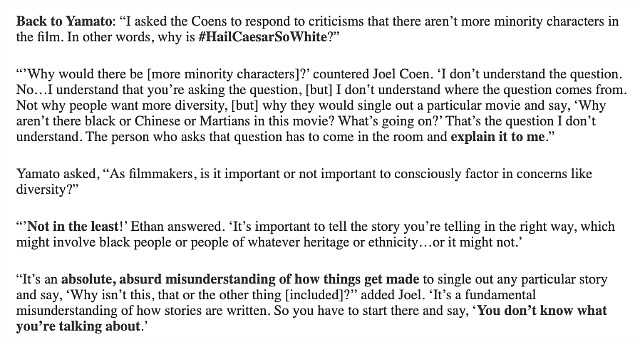David Fincher‘s Mank is obviously something else. Consider the rapier wit, the pedigree, the Erik Messerschmidt cinematography, the yesteryearness. I’ve read an early draft of the script, and I know it’ll be brilliant. And I can’t adequately express how the prospect of spending two-plus hours with the God-like Herman Mankiewicz delights me to the core.
Even merged with the physicality of the puffy-faced, pot-bellied Gary Oldman in those 1940s baggy suits, tent-like dress shirts and fat ties, I tingle like Peter Ustinov‘s Lentulus Batiatus. Seriously.
This might turn out to be one of the greatest “head” movies of the 21st Century, although in a 1960s Bob Rafelson sense. Seeing it stoned may be a requirement.
What I don’t understand is why Fincher didn’t cast Mank with a Hamilton attitude or…you know, with the liberated, cast-off-the-old-ways, rethink-the-musty-past mindset of Ryan Murphy’s Hollywood or Armando Iannucci‘s The Personal History of David Wokesterfield. Where in this old time Hollywood-white-guy realm of are the African Americans, Latinos and Asians, Mr. Fincher? How can we hope to move forward as a culture if we don’t cast period films according to our own present-tense values and determinations?
The problem is not just Fincher but also Joel and Ethan Coen, who notoriously ignored the Khmer Rouge casting philosophy when they made Hail, Caesar!. Just ask Jen Yamato — she explained it fully four years ago.
